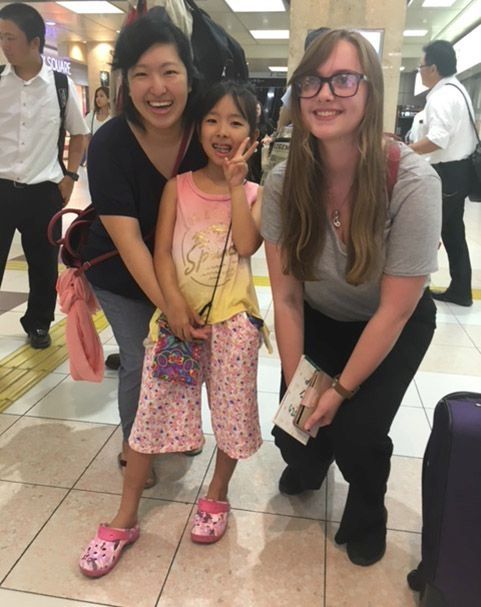Host Family Placements
For participants who will live with a host family during their gap program (the majority of CIEE’s gap programs place students with a host family), they will receive their host family placement information as soon as we receive it from our in-country staff – usually approximately two to three weeks before the program starts. We are busy working on finding the best fit for your participant, and as soon as we have finalized their placement, we will share it with you.
CIEE provides homestay experiences to the majority of our gap program participants because we believe they are the best way to experience local culture, learn the native language, and experience daily life in that culture. Your host family will give you advice, comfort, and parental guidance. Families choose to host because they are interested in intercultural exchanges; they are eager to share their language, culture and family life with your participant. Careful identification, screening, interviewing, selection and vetting goes into every CIEE’s homestay family. In addition, CIEE visits the home and trains the host family before students arrive.
All homestays look different, and we use the term “family” loosely, because there will not always be a mother, father, and children as is typically imagined. Some homestays may include children or extended family members, including multiple generations such as aunts, uncles, or cousins, and some homestays may constitute a single woman or older couple. In addition to diversity in family structure, there is also diversity in the look and feel of the home (apartment or house) and socioeconomic status. Regardless of makeup, all placements are composed of warm, gracious individuals who live in the host country and cannot wait to open their home and culture to share with a CIEE student.
What to expect from your Host Family:
- Meals: Breakfast and dinner.
- Their own bedroom, and access to all common areas of the home.
- Language Immersion: Host families are not required to speak English and, if they know English, they are encouraged NOT to speak to participants in English. Host families will be a great source for participants to learn and practice the local language.
- A family (of any type) will welcome your participant into their home and treat them as their own child – which includes setting rules, giving chores, and providing supervision.
What the Host Family expects from your participant:
- Attend meals, be attentive, engage in family activities, have a good attitude, participate in conversations, and be honest about their likes/dislikes
- Care for their bedroom and have consideration for the family. Homestay are not hotels! Participants are expected to pick up after themselves and use utilities sparingly.
- Language Immersion: Encourage your participant not to speak in English unless absolutely necessary, greet their host family at every interaction, include themselves in household conversations, and make an effort to learn the native language and improve.
- Host families want participants that will respect their home and all of their rules.
- True cultural exchange: Encourage your participant to talk about their life in the United States and express curiosity about life in their host country, make an effort to share in the local culture, adapt to their host family’s lifestyle, be part of the family, and have fun with them!
Host Family Tips:
- Help your participant understand that building and maintaining a healthy host family relationship is crucial to their success on the program. They may not instantly feel like a member of the family, but if they make an effort to form connections, that feeling of belonging will develop over time.
- Encourage your participant to share pictures, cook with their host family, ask for a tour of the neighborhood and town, tell them about their family, friends and school in the United States, and share their interest or talents with their family.
- Encourage your participant to engage in any opportunity (including household chores like meal preparation, clean-up, errands, etc.) and to seek out opportunities to get involved. “How can I help?” is always a great conversation started!
- Remind your participant to be respectful and ask permission before taking food from the kitchen or using anything that doesn’t belong to them.
- Remind your participant of the rules and the importance of following them. Encourage your participant to talk to their host family about things like curfew, computer use, food, inviting guests over and making sure their host family always know where they are.
- Most importantly, remind your participant to COMMUNICATE WITH THEIR HOST FAMILY! ! If they are ever unsure about how to tell their host family something or need clarification about expectations, they should reach out to local staff right away. In-country staff are very experienced in facilitating host family/participant conversations. Our host families all want participants to have a great experience, and open communication will help everyone achieve that goal.
- Remember, your participant’s host family has a different cultural background than your participant. They may have a very different style of communication, sense of time, etc. so it is very important for your participant to try to adapt to their host family’s lifestyle.
Family Visit Rules
CIEE strongly encourages family and friends to wait until the end of their participant’s program to visit. Earlier in this newsletter, we talked about Culture Shock. It is real and something that the majority of participants will experience. When family and friends visit, participants often go through culture shock and/or homesickness again. We all want your participant to have the best experience possible. Waiting to visit until the end of the program is the best way to ensure your participant doesn’t have to re-adapt to their new surroundings and culture.

